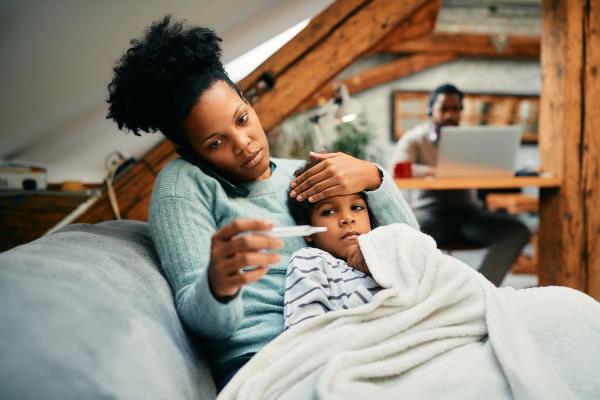
SPONSORED CONTENT -- (StatePoint) Your child has a stuffy nose, cough and fever. Is it the flu? COVID? A common cold? Or are they symptoms of respiratory syncytial virus (RSV)? Or another virus known to cause the common cold? There seem to be so many, especially in young children who can have several colds per year.
Viruses can keep your child out of school for days and aren’t cured by antibiotics. Days being sick mean missing activities and time with friends. One of the best ways to keep everyone healthy is to get vaccinated when you can, according to the American Academy of Pediatrics.
“Children spend a lot of time indoors close to others during the winter. It’s easy to share germs when you are playing, especially for younger children who may not be as good at wiping their nose or washing their hands,” said Dr. Joanna Parga-Belinkie, a neonatologist, pediatrician and mom of three.
“It’s not too late to have your child vaccinated for flu and COVID to help keep them from passing and picking up viruses during play. These vaccines help boost the immune system. It’s sort of like when your phone updates its software to recognize and resist viruses. This boost helps protect children and the community from severe illness.”
If your child isn’t feeling well and has a fever, stuffy nose, cough, headache or body aches, is throwing up or has diarrhea, it is most likely from a virus. There are tests for things like the flu, RSV and other causes of illness. Be sure to call your pediatrician to help sort out if you need testing and if it could be flu, COVID, or a cold.
Ask your pediatrician about the flu vaccine. It is recommended for everyone 6 months and older each year. Just last year in 2024, nearly 200 U.S. children died of flu-related illness. Eighty-three percent of the children who died from the flu were not vaccinated, making it clear that the flu vaccine helped children avoid getting very sick.
It’s also important to get the updated COVID vaccine. This virus has not gone away, and it still makes kids sick. In August 2024 during a COVID spike, nearly 6% of emergency department visits for children younger than 5 years old were from COVID, according to the Centers for Disease Control and Prevention.
Lastly, the most common cause of hospitalization in infants under 1 year of age is RSV. Infecting nearly all children at least once by the time they are 2 years old, RSV can be dangerous. The infection can spread to the lungs and cause serious breathing problems that can’t be managed at home. Nirsevimab (Beyfortus) immunization is for infants under 8 months of age during RSV season. It is also for some children age 8 through 19 months who are at increased risk for severe RSV disease and entering their second RSV season.
Healthy Children, the parent and caregiver website of the American Academy of Pediatrics, offers more information at healthychildren.org.
Photo Credit: (c) Drazen Zigic / iStock via Getty Images Plus




